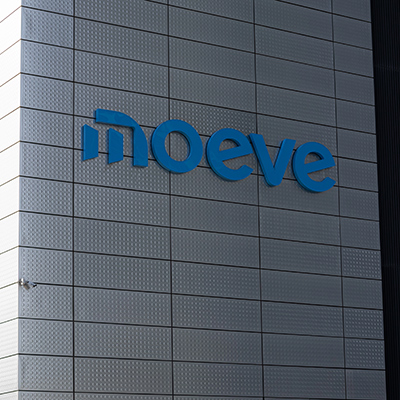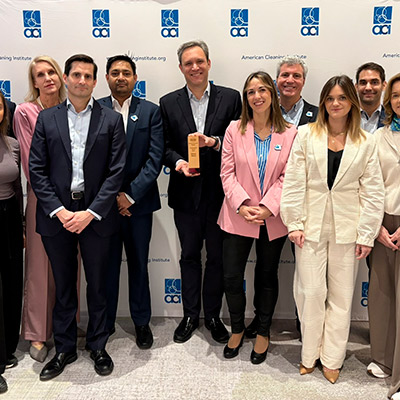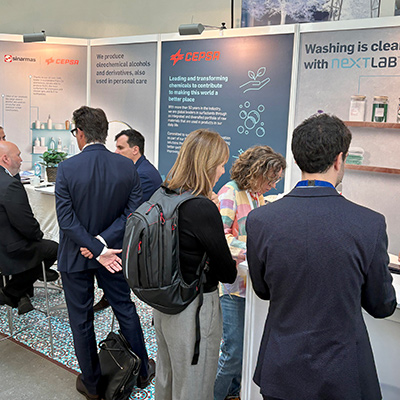- NextLab Low Carbon is produced by decreasing plant emissions during the production process and has the same technical characteristics as traditional LAB
- Existing detergents could reduce their carbon footprint by using NextLab-Low Carbon without having to reformulate their products
- NextLab Low Carbon is available for the North American market
Cepsa Química's NextLab Low Carbon is a product manufactured using renewable energy instead of conventional fossil fuels. This change in the energy sources used for the production process has a positive impact on the environmental characteristics of the product, allowing a reduction in GHG emissions derived from the production of this new sustainable LAB.
The NextLab-Low Carbon keeps the same technical characteristics as the traditional LAB, but with a smaller carbon footprint. Preliminary data from the comparative Life Cycle Assessment underway shows that this product reduces the GHG (cradle-to-gate) footprint between 10-20% compared to the manufacture of traditional LAB. This means that, simply by using NextLab-Low Carbon in the manufacture of detergents, more sustainable products can be achieved without the need for reformulation.
The NextLab product platform, that comprises NextLab-Low Carbon, was created with the aim of helping the home care industry, which consumes around 7.7 million tonnes of surfactants annually, to achieve its sustainability goals while meeting the environmental demands of consumers.
Bécancour
NextLab-Low Carbon will be supplied to the North American market from Cepsa Química's plant in Bécancour (Canada), which by 2023 will be using renewable fuels instead of fossil fuels in its production, making it the ideal production center for the manufacture of this product. This facility also has the state-of-the-art technology, Detal Plus technology, for the manufacture of Linear Alkylbenzene, the main component in the manufacture of most biodegradable detergents.
The Detal Plus technology, developed by Cepsa Química, together with Universal Oil Products (UOP), creates a safer, more efficient and sustainable production process than previous systems. In addition, the use of raw materials and electricity is optimised, GHG emissions decrease, and water consumption is reduced by 40% per year, while the quality and versatility of the LAB produced are improved.
Linear alkylbenzene (LAB), the main component of linear alkylbenzene sulphonate (LAS), is used in the production of a large number of the biodegradable detergents currently on the market. LAS is the most widely used biodegradable surfactant in this type of products thanks to its excellent properties, which make it a necessary component, both in traditional detergent formats (powder or detergent bars) and in more sophisticated products (single-dose capsules or high concentration liquid detergents).



